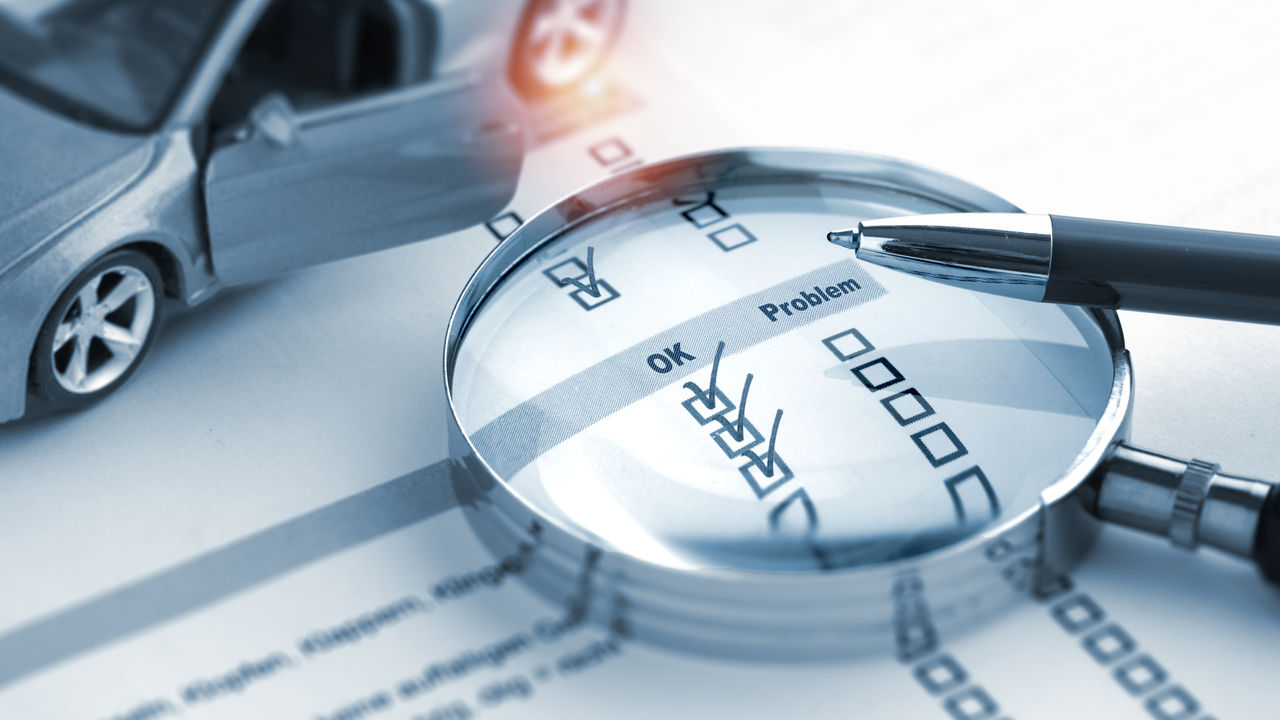BBB has used car buying tips to make sure you set a budget, research models, compare prices, and make wise purchase decisions.
It's time to buy a car, and you've decided to buy a used (or pre-owned) vehicle rather than a new one.
There are some things to do before buying any car: make sure you set a budget, research models, compare prices, choose a warranty, and know how you will pay for the car. Read BBB's tips on buying a new car. This page will focus on specific information for buying a used car.
Where to buy your used car
One of the big differences between buying a new car and buying a used car is there are many more options for where to buy used (pre-owned).
In the U.S., one major difference between a private seller and other sellers is the Buyer's Guide.
The Federal Trade Commission's Used Car Rule states that dealers must post a Buyer's Guide for every used car for sale. Sellers selling more than five used cars per year must provide the Buyer's Guide. Banks and financial institutions are exempt. Businesses selling vehicles to their employees and lessors selling leased vehicles to certain buyers are exempt.
The Buyer's Guide includes information on any significant problems with the mechanical and electrical systems and suggests getting the vehicle inspected by your mechanic before purchasing. The Buyer's Guide also tells you if the car is being sold "as-is" or comes with a warranty (and the conditions of that warranty). If the "as is" box is checked on the "Buyers Guide," you have no warranty. If the warranty box is checked, ask for a copy of the warranty and review it before you agree to buy the car.
Under some state laws, if the car does not have a written warranty but is not specifically considered "as is," an implied warranty covers it. Depending on your state's laws, the implied warranty may guarantee that the car will run or will live up to the seller's assurance that it is fit for a particular purpose, such as pulling a trailer. Your state consumer protection office can provide more information about the specifics of implied warranty coverage.
Do your homework
Before you head out to buy your car, do your homework. Many online resources can help you check the average retail prices of different makes and models of used vehicles, depending on the year they were produced and the miles they were driven. Keep these prices in mind as you shop and negotiate. Online resources and publications can also give you information on the reliability records of various models.

Inspections and test drives
When a car is sold "as-is," there is no warranty, and once you sign papers and drive away, the seller has no more responsibility.
This makes it especially important to know as much as possible about the car's condition before buying it. Don't expect perfection in a used car, but don't overlook serious defects.
Be alert: some sellers are adept at masking problems, and a steam-cleaned engine and gleaming paint job do not indicate the automobile's quality. Check the car in daylight and bring someone along to help you make a thorough inspection.
Below are some areas worth checking; check out more expert tips from Consumer Reports.
After these visual inspections, take the car for a test drive.
If a dealer will not let you go for a drive, you should consider walking away. Here are things to consider on your drive (you can find more test drive suggestions on Consumer Reports):
- The car should start easily and without excessive noise.Once it has warmed up, listen for engine noises as you drive. Unusual sounds may be signs of trouble. Any noise that sounds strange should be a warning sign.
- Drive on various terrains, such as highways, back roads, and through traffic.
- Does the car idle and accelerate smoothly, or does there seem to be some hesitation?
- Drive down a straight and level stretch of roadwhile holding the steering wheel lightly. Does the car consistently pull in one direction? Try turning at various speeds. Too much sway or stiffness can mean bad shocks or front-end problems. Turn the wheel all the way from one side to the other. The power steering should feel smooth with little or no squealing.
- Pay attention to how the brakes are working. Does the car pull to the left or right while you are braking? Are the brakes responsive, or does the car require an unusual amount of time to stop?
You also want to pay special attention to the odometer, which tracks the miles the car has been driven.
The National Highway Traffic Safety Administration (NHTSA) estimates that consumers lose billions of dollars yearly to odometer fraud. Odometer readings can be rolled back, and documents can be forged. Making miles disappear helps increase the car's value to the seller and can mean increased maintenance and repair costs to the buyer.
Here are some things to think about when checking the mileage on a used car:

Take it to a mechanic
Once you have found a car you are considering buying and tested yourself, have a mechanic check it thoroughly before signing anything. You will have to pay for this, but it is crucial, as there could still be problems you did not find.
Ask for a written estimate of the costs to repair any problems the mechanic finds, and use that estimate as a bargaining chip when you make your offer for the car.
In some U.S. states, an official state inspection may be legally required. Check with your Department of Motor Vehicles for specific laws in your locality and to learn what you need to register the car.
In Canada, car inspections requirements differ by province, so check with your provincial government.

Get your car's history and investigate recalls.
- Ask the seller for a copy of the service records for the car. Find out if you can talk to the previous owner about any accidents or issues.
- You should get a history report once you have chosen the car you want to buy. Copy down the Vehicle Identification Number (VIN) located on the driver's side dashboard near the window or the driver's side door. Make sure all VINs are identical. The VIN provides an AutoCheck Vehicle History Report, allowing the buyer to check the used car's title. The Department of Justice's National Motor Vehicle Title Information System (NMVTIS) offers information about a vehicle's title, odometer data, and certain damage history for a small fee.
- You also want to watch out for salvage and rebuilt titles. These titles are issued when the car has sustained damage because of one or more incidents. In the U.S., salvage titles are issued by the state when an insurance company takes possession of a vehicle because of a claim and usually occur when a vehicle has been declared a total loss. A rebuilt title may be issued if a vehicle sustained damage, was rebuilt or reconstructed, and then placed back on the road. Junk titles are issued when a car is not road-worthy and cannot be titled again in that state.
When a car is given a salvage title in Canada, it stays with that vehicle until the province declares that the owner has restored it to driving condition
Use free resources to access car history reports.
The National Insurance Crime Bureau (NICB) maintains a free database that includes flood damage and other vehicular information. You can also search online for companies that sell vehicle history reports, such as CarFax. However, verify the report with the reporting company if you suspect it is incomplete or fraudulent.
The Department of Transportation operates a toll-free Vehicle Safety Hotline (800-424-9393) and a web page where you can find out if a particular vehicle has ever been recalled for safety defects.

Closing the deal
Unless specified in the contract, you do not have a cancellation period to leave the sale, so it's important to read and understand everything before signing.
- Ask questions. Do not sign unless you are satisfied with the answers.
- Be sure that all blank spaces are filled in, that all of the salesperson's verbal promises are included, and that any warranty with the car is spelled out.
- If the seller has agreed to take care of any repairs as a condition of purchase, make sure these commitments are in the contract. Get the timeframe for completion of the repairs in writing and ensure you understand who to contact about the work. Remember that repairs on a used vehicle can take longer than expected when parts need to be ordered or repairs under warranty need to be approved.
- If you must make a deposit, ask whether it is refundable and under what circumstances, and ensure the information is also included in the contract.
- Be sure to get a signed statement verifying the mileage at the time of sale. Most state laws require used car dealers to provide the buyer with this information in writing.
- Know your state's requirements concerning emissions inspections, child safety, seat belt and airbag requirements, and title transfers.
- Ensure you understand what will happen if you fall behind on payments and how the seller will communicate with you.



